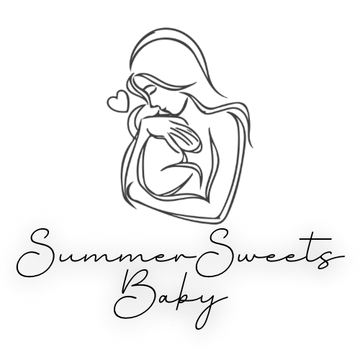Teething and Cloth Nappies
Navigating the Challenges of Teething
Teething is a rite of passage for babies and young children, as they transition from gummy grins to a full set of pearly whites. Unfortunately, this transition can be quite painful for little ones, and as parents, we want to do everything in our power to soothe them and make them comfortable. In this post, we'll explore some tips and strategies for navigating the challenges of teething and using cloth nappies.
How Do I Know When My Baby is Teething?
First, let's talk about the signs of teething. Some common signs that your baby may be teething include excess drooling, unexplained fussiness, and biting or chewing on anything they can get their hands on. They may also have trouble sleeping, or be more irritable than usual. To help soothe your little one during this time, you can try offering them a chilled teething ring or a clean, damp washcloth to chew on. You can also use a gentle, child-safe teething gel or ointment to numb the gums and relieve pain.
Wearing Cloth Nappies While Teething
When it comes to wearing cloth nappies while teething, there are a few things to keep in mind when your baby starts popping through teeth. One of the most important is to be extra vigilant about nappy rash. This is the time in your baby's life they will be most prone to getting nappy rash, however, cloth nappies do help prevent nappy rashes better than disposable nappies would.
As your baby drools and chews on their gums, they may also be more prone to nappy rash, so it's essential to change their nappy frequently and apply a barrier cream if needed. If you do apply a cream, please be sure that it is safe for use with cloth nappies and you use either a disposable or reusable liner to protect the cloth nappy from build up, staining, and repelling. See our liners here. Additionally, using a stay-dry liner will help keep your baby dry and comfortable.
Another thing to keep in mind is that teething babies may be more prone to leaks and blowouts. This is because the act of chewing on their gums can put pressure on the stomach, which can cause bowel movements. These are usually looser than normal and may have a different smell and texture. If you are worried about the changes, do consult your PHN or GP. To help prevent leaks and blowouts, make sure your nappies are a good fit, and consider using a doubler or booster to add extra absorbency if you need.
How Can I Make Sure My Baby is Comfortable?
As we mentioned above, adding a stay-dry liner to your baby's nappies to keep them feeling dry, change them more often to keep nappy rash at bay, and allow them to chew on a cooled teether or clean towel. You may also want to think about your baby's comfort when it comes to their clothing. Teething babies may be more sensitive to certain fabrics and textures, so consider dressing them in soft, breathable clothing that won't irritate their skin.
While teething can be a difficult time for both babies and parents, with a little extra care and attention, you can help your little one feel more comfortable.




